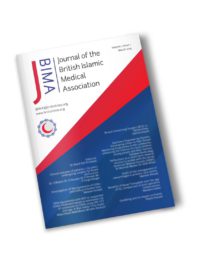
Background:
Medical ethics has a rich history of derivation from theological sources, such as from the Hippocratic Oath and religions such as Judaism, Christianity and Islam. In history religion and theology have been used in the development of medical regulatory guidance.
Aim:
To explore how a prophetic saying (Ḥadīth) can be used by clinicians of all faiths and none, to enhance the management of mental health.
Design and setting
Psychological exploration of the Ḥadīth “The believer is a mirror of their brother” and its utility in management of mental health within healthcare settings worldwide.
Method
The Ḥadīth was analysed within the context of the UK and American medical regulatory guidelines set out by the General Medical Council and the American Medical Association to develop a framework for its practical application within mental health consultations.
Results
A framework which can facilitate clinicians of all faiths and none during mental health consultations, the MIRROR framework. Memory, a mirror has no memory and is confidential, just as a clinician is when they leave their work. Impartiality, a mirror shows what is present without any judgement, in the same way clinicians are completely transparent in their consultations.Relationship, a mirror should be held neither too close.nor too far, similarly clinicians must maintain professional boundaries. Rounded, the viewer is at the focal point of the mirror, the mirror is viewer-centred in the same way that clinicians are patient-centred. Openness, a mirror does not change according to the viewer, likewise, clinicians must not allow unconscious biases to affect their practice. Revitalize, a mirror is cleaned before reflecting the viewer, in the same manner clinicians must look after their own mental health before managing their patient’s mental health. The framework provides solutions to challenges faced within mental health consultations including clinician burnout, transparency of mental health services, harmful therapy, the social determinants of mental health, cultural safety and clinician self-care.
Conclusion
This paper provides greater understanding of how faith-based medical regulatory guidance in conjunction with secular medical regulatory guidance can guide clinicians when faced with challenges in the workplace to improve the management of mental health.

